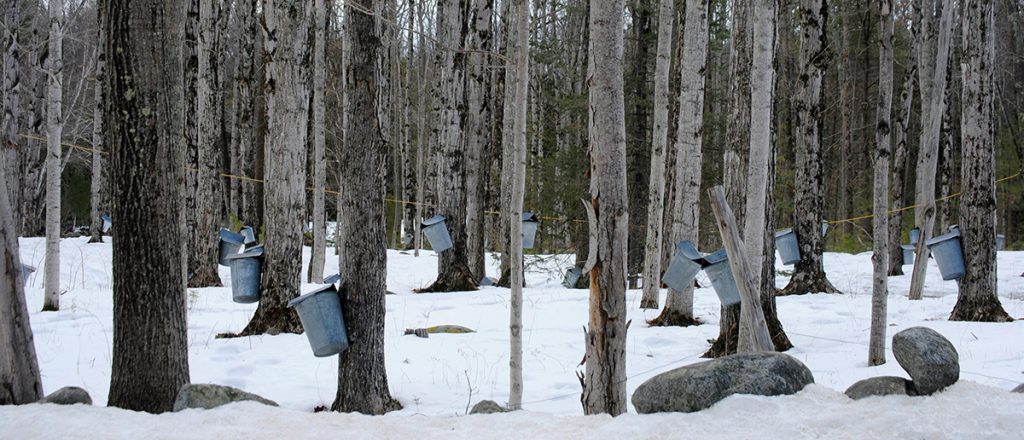
Bioenergy in Quebec: A Renewable Powerhouse
As one of Canada’s most resource-rich provinces, Quebec has emerged as a leader in the development and utilization of bioenergy. With vast forestry resources, a thriving agricultural sector, and a strong commitment to sustainable development, the province is harnessing the power of biomass to meet its energy needs while promoting environmental stewardship.
Solid Biomass: Fueling Quebec's Forest Industry
One of the most prominent bioenergy formats in Quebec is solid biomass, derived primarily from forestry residues and byproducts. The province’s well-established forest products industry provides a significant source of biomass feedstock for energy generation.
Companies like Resolute Forest Products and Kruger Inc. are at the forefront of using wood residues and byproducts for cogeneration and process heating in their pulp and paper mills. Additionally, purpose-grown energy crops like willow and miscanthus are being explored as sustainable sources of solid biomass for power generation.
Renowned experts like Dr. Paul Stuart from the University of Quebec at Trois-Rivières and Dr. Michèle Heitz from the National Research Council of Canada have made significant contributions to advancing biomass conversion technologies and sustainable biomass supply chains in the province.
Biogas and Biomethane: Circular Economy Champions
Biogas, produced through the anaerobic digestion of organic materials such as agricultural residues, animal manure, and municipal solid waste, is also gaining traction in Quebec as a sustainable energy source and waste management solution. Companies like Biogaz EG and Biométhane Verte Montreal are leading the way in biogas production and utilization.
Biomethane, the purified form of biogas, is emerging as a renewable substitute for natural gas. Companies like Énergir and Gaz Métro are pioneering innovative biomethane projects, exploring its potential for heating, power generation, and transportation applications.
Liquid Biofuels: Diverse Feedstocks and Applications
Quebec’s agricultural sector also provides opportunities for the production of liquid biofuels, such as biodiesel and bioethanol. Companies like Darling Ingredients and Olco are leading producers of biodiesel, utilizing various feedstocks like animal fats, used cooking oil, and canola oil.
In the bioethanol sector, companies like Greenfield Global and Enerkem are at the forefront of developing advanced biofuels from agricultural residues and municipal solid waste, showcasing the potential for innovative biomass valorization strategies.
Renowned Experts and Research Institutions
Quebec boasts several renowned experts and research institutions dedicated to the advancement of bioenergy technologies and policies. Dr. Michèle Heitz from the National Research Council of Canada is a pioneer in the field of biomass conversion and biorefinery concepts, while Dr. Josée Bourgeois from the Université du Québec à Trois-Rivières is a leading expert in bioenergy sustainability and policy analysis.
The Biorenewable Industrial Research Chair at the Université de Sherbrooke and the Biotechnology Research Institute at the National Research Council of Canada have played pivotal roles in bioenergy research and development, contributing to the province’s efforts to promote sustainable energy solutions.
Breakthroughs and Developments
Quebec has witnessed several notable breakthroughs and developments in the bioenergy sector. For instance, the Quebec-based company Pyrovac has developed a groundbreaking technology for converting forestry residues into high-quality biochar and biofuels through a process called pyrolysis.
Additionally, the Montreal-based company Enerkem has made significant strides in developing renewable gasoline and chemicals from municipal solid waste, showcasing the potential for innovative biomass valorization strategies.
Looking Ahead
As Quebec continues to embrace bioenergy as a key component of its renewable energy strategy, the province is well-positioned to contribute significantly to the global transition towards a low-carbon economy. With abundant biomass resources, a strong research and development ecosystem, and supportive policies, Quebec is poised to play a pivotal role in shaping the future of sustainable energy production and utilization in Canada and beyond.
Related Articles For Quebec

The Future of Bioenergy: Innovations, Challenges, and Opportunities
Exploring Dominion & Grimm (D&G) and Biogas Lipp‘s Cutting-Edge Anaerobic Digestion Technologies – Part 4 out 4 Series PREVIOUS PART 3 As we stand at the crossroads of a global energy transition, bioenergy emerges as a crucial player in our sustainable future. This final article in our series explores the cutting-edge innovations, pressing challenges, and exciting opportunities that lie ahead in the bioenergy sector, with a particular focus on the roles of industry leaders like Dominion & Grimm and Biogas Lipp. Emerging Trends in the Bioenergy Sector The bioenergy landscape is rapidly evolving, driven by technological advancements, policy shifts, and changing market dynamics. Key trends shaping the future of bioenergy include:
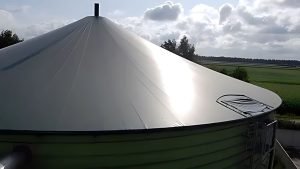
Biogas Lipp: Innovating Anaerobic Digestion Systems
Exploring Dominion & Grimm (D&G) and Biogas Lipp‘s Cutting-Edge Anaerobic Digestion Technologies – Part 3 out 4 Series PREVIOUS PART 2– NEXT PART 4 In the evolving landscape of renewable energy, biogas has emerged as a promising solution for sustainable waste management and energy production. At the forefront of this technology stands Biogas Lipp, a company that has revolutionized the field of anaerobic digestion systems. This article explores Biogas Lipp‘s background, their cutting-edge technologies, and the significant impact they’ve made on the global biogas industry. From German Roots to Global Reach Biogas Lipp‘s story begins in Germany, a country known for its leadership in renewable energy technologies. The company originated as Lipp GmbH, leveraging Germany’s
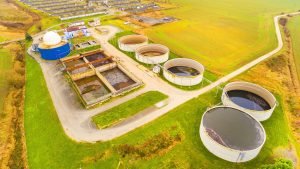
Dominion & Grimm: Pioneers in Green Energy Transformation
Exploring Dominion & Grimm (D&G) and Biogas Lipp’s Cutting-Edge Anaerobic Digestion Technologies – Part 2 out 4 Series PREVIOUS PART 1 – NEXT PART 3 In the rapidly evolving landscape of renewable energy, some companies stand out for their ability to innovate and adapt. Dominion & Grimm (D&G), a Montreal-based company with roots in the maple syrup industry, has emerged as a surprising yet formidable player in the bioenergy sector. This article explores D&G’s remarkable journey from maple syrup production to becoming a leader in biogas technology, highlighting their significant contributions to Canada’s green energy revolution. A Sweet Beginning: D&G’s Maple Syrup Legacy Dominion & Grimm‘s story begins in the early 20th century, deeply
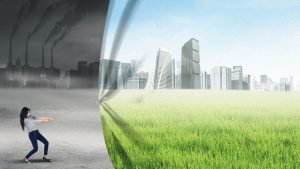
The Bioenergy Revolution: From Global Crisis to Local Solutions
Exploring Dominion & Grimm (D&G) and Biogas Lipp‘s Cutting-Edge Anaerobic Digestion Technologies – Part 1 out 4 Series NEXT PART 2 The Bioenergy Revolution: From Global Crisis to Local Solutions In an era marked by pressing environmental challenges and a growing energy crisis, the world is urgently seeking sustainable alternatives to fossil fuels. At the forefront of this green energy revolution stands bioenergy – a renewable energy source derived from organic materials. This article explores the global context of the energy crisis, the rise of bioenergy as a viable solution, and Canada’s journey in embracing this transformative technology. The Global Energy Crisis: A Call for Change The world

Turning cow manure into green energy
How a farmer in Shefford is turning cow manure into green energy Another step towards meeting Quebec’s goal on renewable energy by 2030 Paul Sauve is not your typical farmer. He is also the founder of GNR Shefford, a project that aims to produce renewable natural gas (RNG) from cow manure, slurry and agricultural residues. RNG is a form of biogas that can be used as a substitute for fossil natural gas, reducing greenhouse gas emissions and contributing to the energy transition. Sauve’s project is one of the first of its kind in Quebec, where the government has launched a program to support the production of RNG from
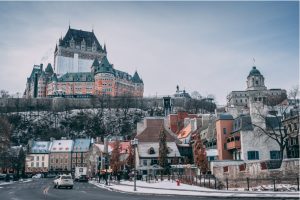
Quebec’s 2030 Renewable Energy Strategy
Quebec’s 2030 Renewable Energy Strategy: A Vision for a Prosperous Future Quebec is a leader in Canada in the fight against climate change and the transition to a low-carbon economy. The province has set ambitious targets to reduce its greenhouse gas (GHG) emissions, increase its renewable energy production and consumption, and achieve carbon neutrality by 2050. To reach these goals, Quebec has adopted a comprehensive policy framework that guides its actions and investments in various sectors of activity, such as transportation, industry, buildings, agriculture and waste management. One of the pillars of this policy framework is the 2030 Plan for a Green Economy (2030 PGE), which was unveiled
